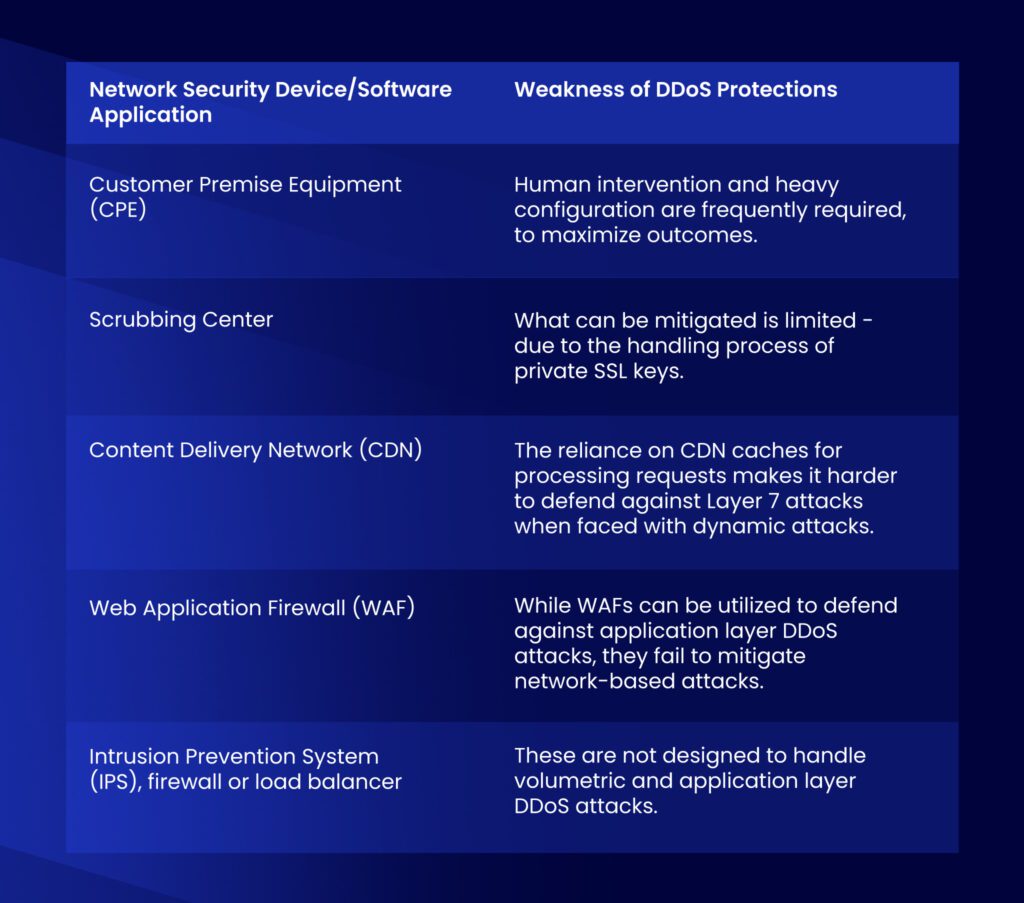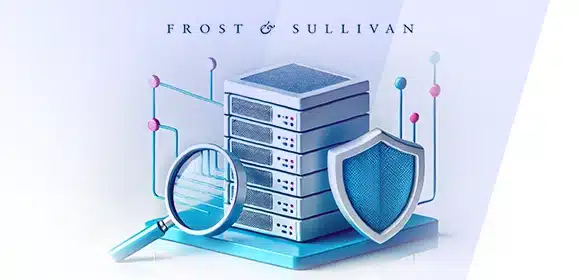Frost & Sullivan’s recent report, Ongoing Vulnerability Testing for DDoS Protection, underscores why continuous, automated testing and vulnerability identification is crucial to proactively mitigate the risk of a Distributed Denial-of-Service (DDoS) attack.
What Makes DDoS Mitigation Approaches So Unreliable?
Every approach that is currently being used for DDoS protection has strengths and weaknesses. Just as an example, let’s take a look at some of the specific components of a typical IT ecosystem, that are usually set up to try and provide maximal DDoS protection – and identify where they fall short:

Handling the Current Surge in DDoS Attacks
Frost & Sullivan’s report underscores the growing risk of DDoS attacks, which is impacting organizations across a wide range of industries and geolocations. Some key datapoints from Frost & Sullivan’s research include:
- $1.8 million: The average cost an organization suffers due to a DDoS attack, including the losses from the disruption of business continuity and the lack of availability of services to customers
- Top 5: The DDoS ranking as one of the most common types of damaging cyberattack that organizations experienced in 2023
- 73%: How many survey respondents were negatively impacted by a successful DDoS attack at least 11 times (in 2023)
- 39%: How many were affected by the disruption of IT system availability
Ongoing, Automated DDoS Vulnerability Management
The current DDoS mitigation solutions that are available have several things in common. Without regular fine-tuning:
- Security policies in protections will not be automated
- Vulnerabilities will creep in
- There will be a gap between perception and reality, with companies having a false sense of security
MazeBolt RADAR™ is the only solution that allows you to proactively identify misconfigurations and vulnerabilities in the DDoS mitigation solutions you deployed. RADAR mitigates the risk by leveraging a continuous, automated approach to DDoS testing without any disruption to online services.
Download the Frost & Sullivan report for actionable insight into uncovering DDoS vulnerabilities in your defenses.






